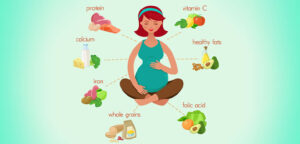What are the conditions and necessary standards for conducting IVF
IVF is considered one of the advanced techniques that help couples conceive. Eggs are taken from the mother and fertilized outside the body with the husband’s sperm, then returned to the mother’s uterus. In this article, we will learn about the most important conditions and necessary standards for conducting IVF:
What are the most important general conditions for conducting IVF:
The most important conditions that must be met by couples before conducting IVF are:

- The wife must be able to produce eggs.
- The husband must be able to produce an adequate quantity and quality of sperm.
- The couple must be legally married.
- Both spouses must be in good health and have no illnesses that impede the procedure.
- There must be mutual consent from both spouses.
- Ensuring that the couple is emotionally and psychologically healthy.
What are the conditions related to a woman for undergoing IVF procedure?
The most important conditions related to a woman for undergoing IVF procedure are:

- The woman must be under 43 years of age, as the chances of pregnancy decrease significantly after this age.
- The woman must have good overall health and not suffer from serious diseases that could affect pregnancy and childbirth.
- The woman must be able to produce eggs in sufficient quantities and good quality.
- There should be no blockage or problems in the fallopian tube, as it plays a major role in pulling the eggs.
- The wife’s uterus must be healthy and suitable for pregnancy.
- The woman must have tried to conceive naturally for at least a year.
- The woman should not have a history of repeated miscarriages or premature births.
What are the conditions related to a man for undergoing IVF procedure?
Here are the most important conditions related to a man for undergoing IVF procedure:

- One of the most important conditions for a man is to be able to produce sperm in sufficient quantities and good quality.
- Quality of the semen: The sperm should be healthy and active, as some problems, such as deformities, affect the chances of reproduction.
- There should be no health problems or serious diseases, such as diabetes, high blood pressure, and heart disease, that could affect the chances of pregnancy.
The cases in which it is not recommended to undergo In vitro fertilization (IVF)
Some cases in which it is not recommended to undergo In vitro fertilization (IVF) include:

- Advanced age where the success rate decreases after the age of 43 for women.
- Low sperm count in men.
- Existence of major health problems in the couple or one of them, such as heart diseases, diabetes, high blood pressure, kidney diseases, and cancer…
- In case the woman has a history of recurrent miscarriages or premature birth.
- When there is a good chance for the couple to conceive naturally.
- Availability of alternative options with good success rates such as artificial insemination.
How to prepare for a IVF procedure?
Preparing for a IVF procedure requires good preparation from the couple before the procedure. Some of the most important preparations include:

- Choosing a specialized and experienced doctor: The doctor will perform a preliminary examination to ensure the couple’s success rate and eligibility, as well as determine all the risks, time, effort, and cost of the procedure.
- Conducting necessary tests and analyses:
The doctor usually requests some tests and analyses, including:
- Blood tests to ensure that there are no diseases that affect the procedure.
- Semen analysis for the husband, to ensure the husband’s ability to produce healthy sperm in sufficient numbers.
- Hormonal tests for the wife, to ensure the wife’s ability to produce eggs in sufficient numbers and good quality.
- Examining the uterus and fallopian tubes.
- Taking medications to enhance the couple’s ability and improve their chances of conception, such as medications that help stimulate ovulation, and medications that help improve the quality of sperm.
- Following the doctor’s instructions before and after the procedure, such as following a specific diet, exercising, avoiding smoking and alcohol, etc.
- Preparing psychologically to accept success and failure, and preparing for all possible outcomes.
The most important advice after undergoing IVF
- The woman should rest after the procedure.
- Regularly follow up with the specialist who performed the procedure.
- Avoid stress and psychological pressure, which may lead to the risk of miscarriage.
- Take good care of the pregnancy after the procedure.
- Follow a healthy diet and consume foods that contain the necessary nutrients for the woman’s body.
- Stay away from smoking and alcohol, which negatively affect the health of the woman and the fetus.

In the end, IVF is a complex process that requires good preparation from the couple before and after the procedure. We hope that we have succeeded in clarifying the most important conditions and standards necessary for IVF.
This content has been approved by doctors at Zein Clinic.
To contact a doctor and receive a free consultation, click here:
Did you like our topic? You can share it with your friends now!
Read also:
The difference between IVF and artificial insemination
Artificial insemination success factors
Causes of infertility in women
References:


 واتساب
واتساب